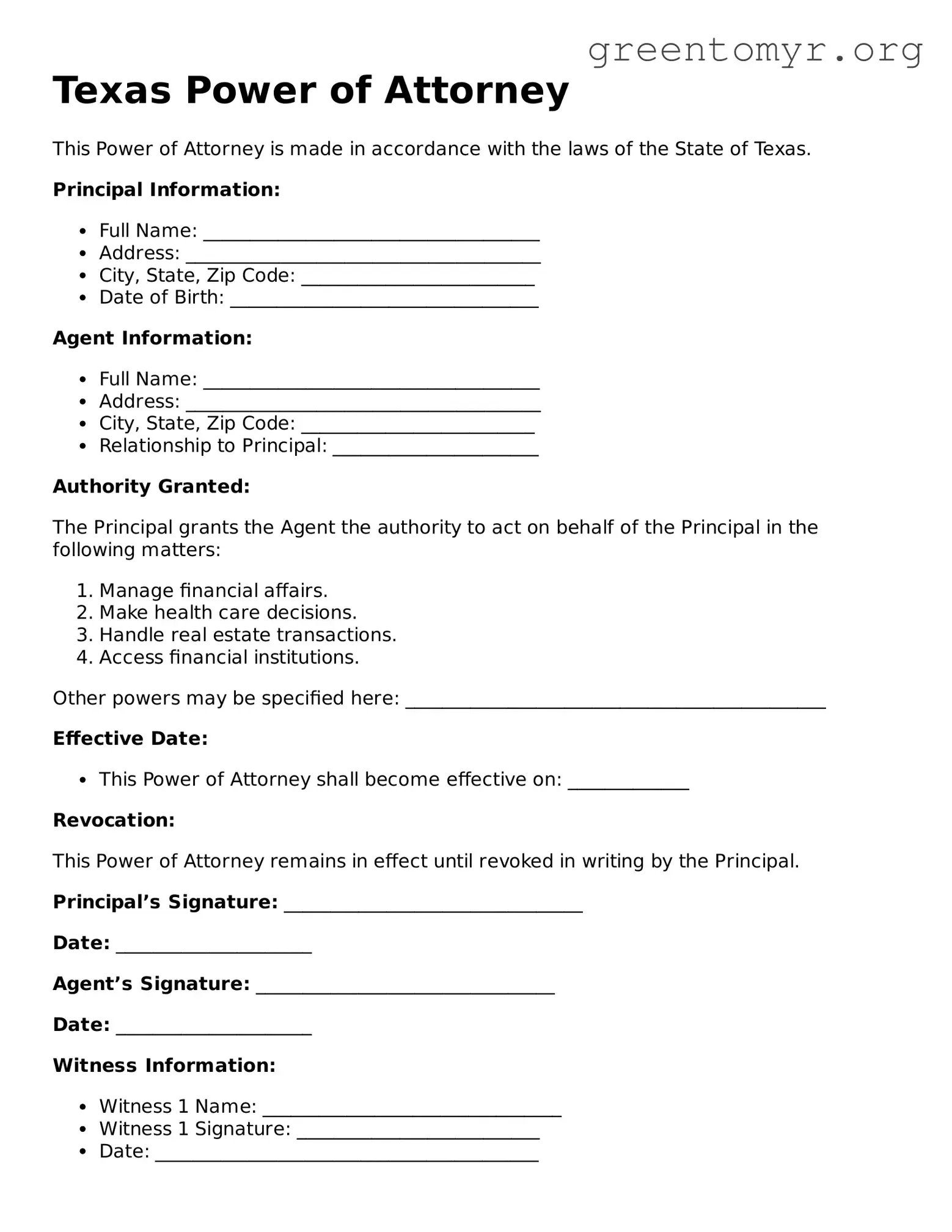Texas Power of Attorney
This Power of Attorney is made in accordance with the laws of the State of Texas.
Principal Information:
- Full Name: ____________________________________
- Address: ______________________________________
- City, State, Zip Code: _________________________
- Date of Birth: _________________________________
Agent Information:
- Full Name: ____________________________________
- Address: ______________________________________
- City, State, Zip Code: _________________________
- Relationship to Principal: ______________________
Authority Granted:
The Principal grants the Agent the authority to act on behalf of the Principal in the following matters:
- Manage financial affairs.
- Make health care decisions.
- Handle real estate transactions.
- Access financial institutions.
Other powers may be specified here: _____________________________________________
Effective Date:
- This Power of Attorney shall become effective on: _____________
Revocation:
This Power of Attorney remains in effect until revoked in writing by the Principal.
Principal’s Signature: ________________________________
Date: _____________________
Agent’s Signature: ________________________________
Date: _____________________
Witness Information:
- Witness 1 Name: ________________________________
- Witness 1 Signature: __________________________
- Date: _________________________________________
- Witness 2 Name: ________________________________
- Witness 2 Signature: __________________________
- Date: _________________________________________
This document was prepared in accordance with the requirements of Texas law.
